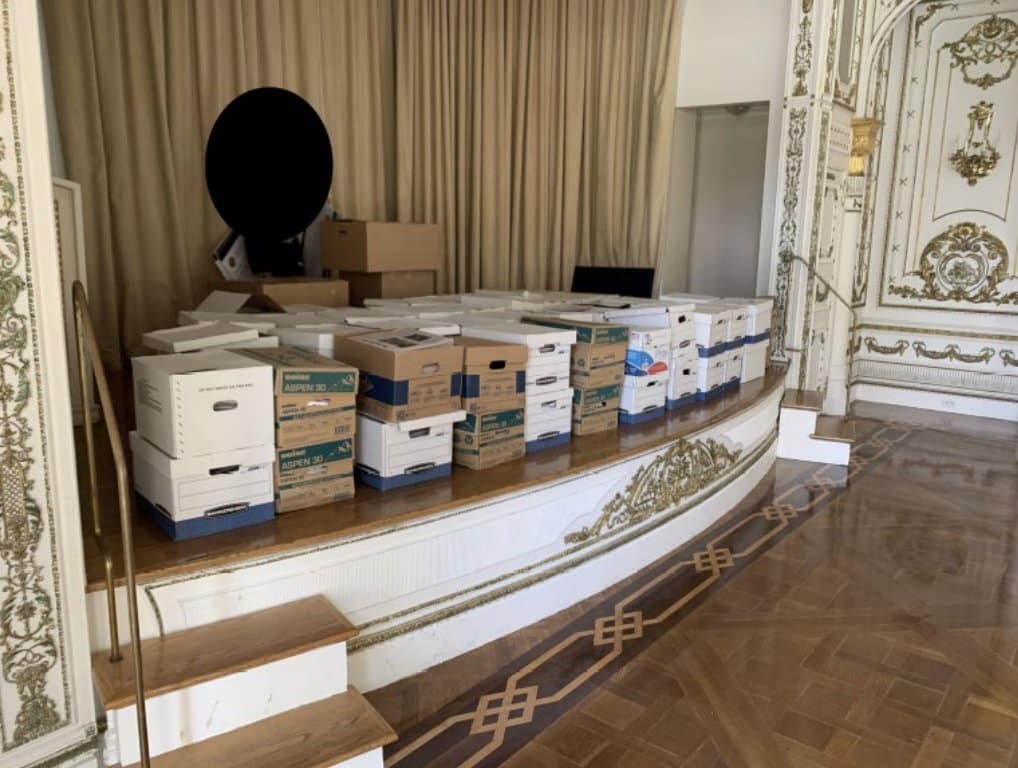CNN Monday night obtained an audio recording of a 2021 meeting at Trump’s residence in Bedminster, New Jersey where he discusses holding documents that he did not declassify.
CNN was first to report on a transcript of the audio, which can be heard here, back in May, saying at the time that federal prosecutors had obtained it.
In Special Counsel Jack Smith’s federal indictment on 37 criminal counts, it is one of two instances referenced where prosecutors allege that Trump showed classified information to others who did not have security clearances
In the recording, a rustling of papers can clearly be heard. Trump himself refers to a “big pile of papers,” which he calls “highly confidential, secret. This is secret information.”
The audio is of a conversation with people who were helping Trump’s former chief of staff, Mark Meadows, with his memoir. The 2-minute clip begins with Trump complaining about his handpicked Chairman of the Joint Chiefs of Staff, Gen. Mark Milley, who has been described in previous media accounts as having guarded against Trump’s striking Iran in the final days of his Administration.
The audio recording goes on:
Woman’s voice: “[W]e’ll have to try to figure out a—”
Trump’s voice: “Declassify it. See, as President I could have declassified it, but now I can’t .”
Woman: “Now we have a problem.”
The conversation occurred in Trump’s New Jersey golf club, not his Florida country club residence, Mar-a-Lago, where FBI agents discovered more than 100 classified documents, according to the federal indictment.
On his media site Truth Social, Trump lashed out on Tuesday morning, stating in all caps, “COULD SOMEBODY PLEASE EXPLAIN TO THE DERANGED, TRUMP HATING JACK SMITH, HIS FAMILY, AND HIS FRIENDS, THAT AS PRESIDENT OF THE UNITED STATES, I COME UNDER THE PRESIDENTIAL RECORDS ACT…NOT BY THIS PSYCHOS’ FANTASY OF THE NEVER USED BEFORE ESPIONAGE ACT OF 1917.”
In fact, the Presidential Records Act of 1978 “[e]stablishes public ownership of all Presidential records.”
It further “[r]equires that the President and his staff take all practical steps to file personal records separately from Presidential records,” and that “Presidential records automatically transfer into the legal custody of the Archivist as soon as the President leaves office.”
The Espionage Act, passed during World War I as a way to stifle dissent and spying against the war effort, prohibited disclosing national defense information that could harm the U.S.
It has been used multiple times in recent years—including against numerous people during Trump’s own Presidential Administration.
Some of the most notable people charged under the Espionage Act in recent years include whistleblowers Daniel Ellsberg in 1973 for his leaking of the so-called “Pentagon Papers,” as well as Reality Winner in 2017 (during the Trump Administration) who served nearly five years in prison for mailing one top-secret document to an online news outlet.
Just this past April, suspected Pentagon leaker Jack Teixeira was charged under the Espionage Act as well.
In an interview last week, Trump denied that any material he possessed at Bedminster was classified, saying on Fox News, “It wasn’t a document, OK? I had lots of paper—I had copies of newspaper articles, I had copies of magazines.”
He added, “There was no document. That was a massive amount of papers and everything else talking about Iran and other things. And it may have been held up or may not, but that was not a document.”
Some of Trump’s attorneys have reportedly been aware of the audio recording for months. One of his aides, Margo Martin, was questioned about it when she appeared before the federal grand jury in March, according to a New York Times’ source.
“The audio tape provides context proving, once again, that President Trump did nothing wrong at all. The President is speaking rhetorically and also quite humorously,” a Trump campaign spokesperson said regarding the recording.
Trump pleaded not guilty to all 37 federal charges against him earlier this month.


